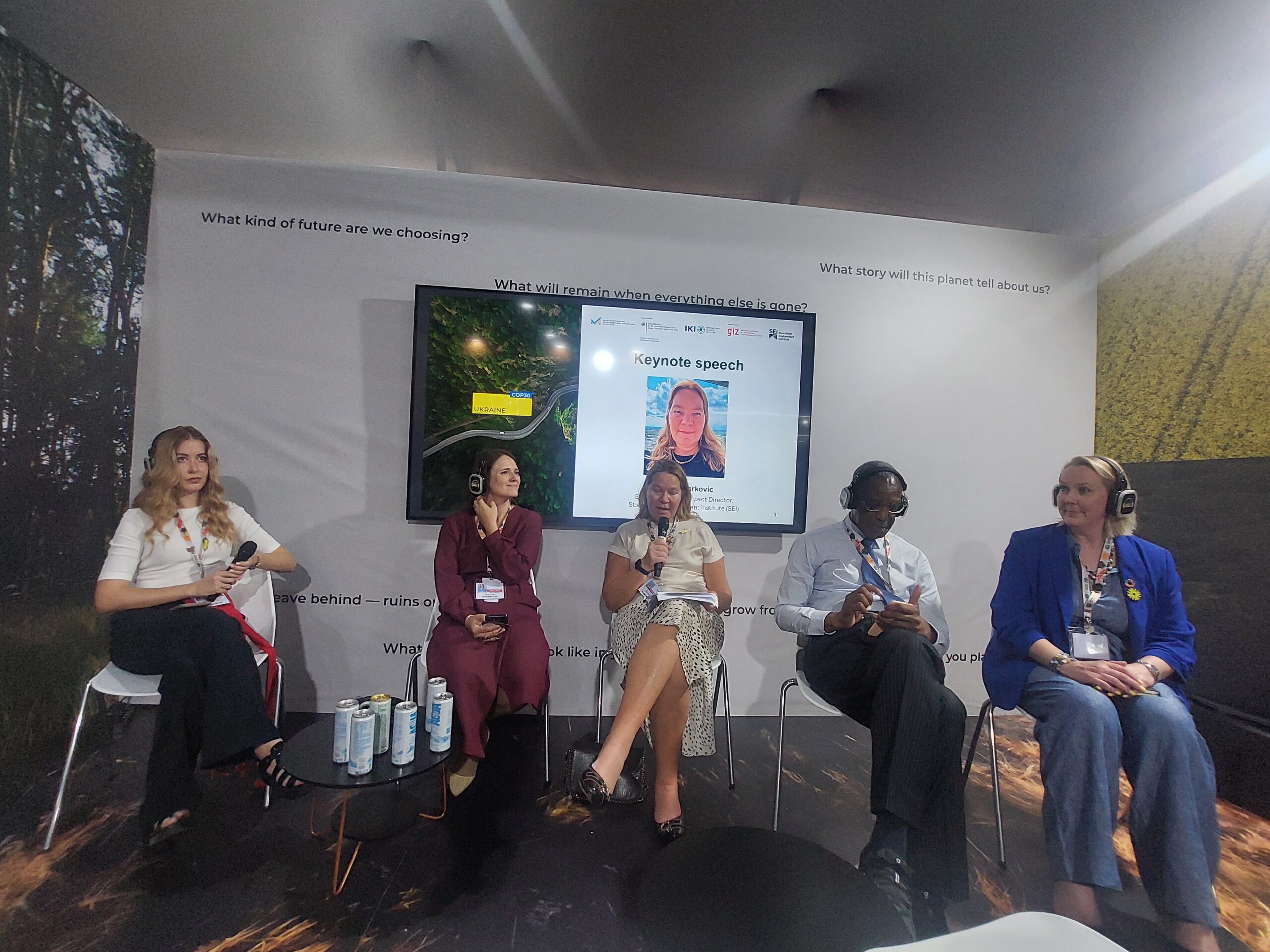A high-level discussion on how to turn climate commitments into real emission cuts – “NDC 3.0 in Practice: Turning Commitments into Climate Action” – took place at the Ukraine Pavilion during the UN Climate Change Conference COP30 in Belém, Brazil.
The event brought together representatives of governments, think tanks and international organisations who are at the forefront of designing and implementing the next generation of Nationally Determined Contributions (NDCs). Participants examined how to align NDC 3.0 with the outcomes of the first Global Stocktake, make targets investable, and support countries facing overlapping crises, including war and economic disruption.
The discussion opened with a keynote address by Annika Markovic, Engagement and Impact Director at the Stockholm Environment Institute (SEI), who outlined global best practices for NDC 3.0 – from integrating the Global Stocktake findings to setting clear, credible pathways that financiers and investors can support.
From the Ukrainian side, experts highlighted how the country is integrating war-related damage, reconstruction needs and EU accession goals into its climate planning. They discussed approaches to updating Ukraine’s NDC, aligning it with the European Green Deal and crafting a “green recovery” framework that prioritises energy efficiency, renewables, modern industry and resilient infrastructure.
The event was organised by the Ministry of Economy, Environment and Agriculture of Ukraine with the support of the IKI Interface Ukraine project and the Stockholm Environment Institute. The project “IKI Interface: Supporting Ukraine towards Ambitious and Integrated Climate Policy (Green Ukraine)” is implemented by Deutsche Gesellschaft für Internationale Zusammenarbeit (GIZ) GmbH on behalf of the German Federal Ministry for the Environment, Nature Conservation, Nuclear Safety and Consumer Protection (BMUV), within the framework of the International Climate Initiative (IKI).
In the closing session, participants stressed that NDC 3.0 must become a practical tool for transformation – with clear sectoral targets, social safeguards and mechanisms for inclusive stakeholder engagement. International partners praised Ukraine’s determination to keep climate ambition high despite the war and expressed readiness to deepen cooperation on modelling, policy design and financing solutions that can accelerate implementation.
